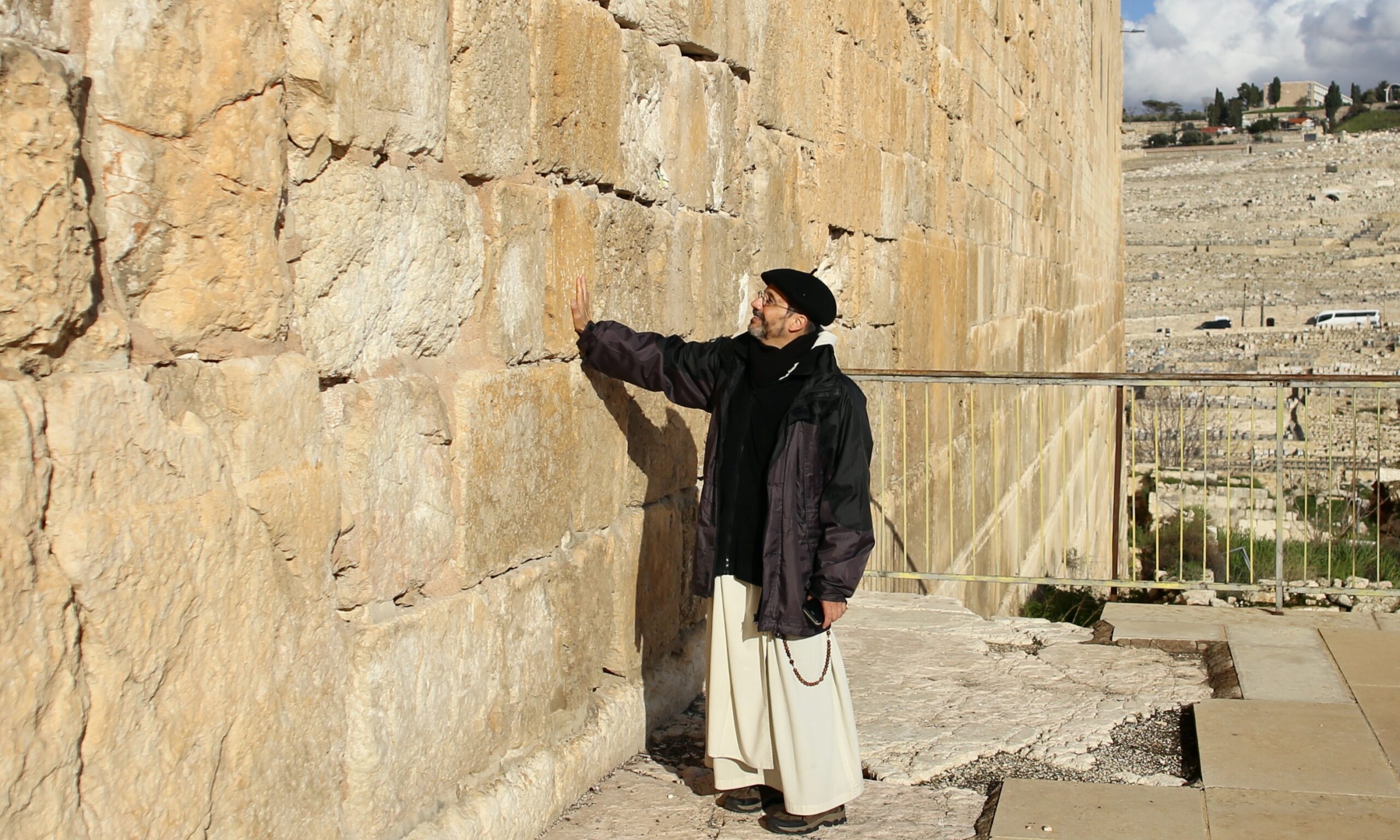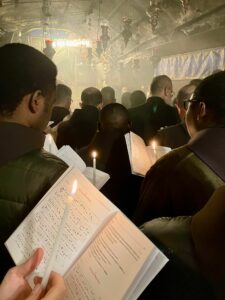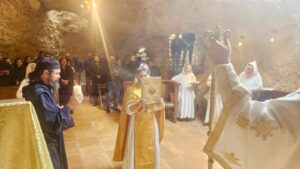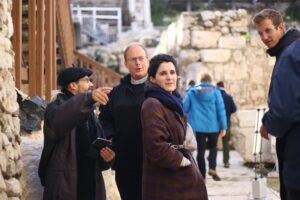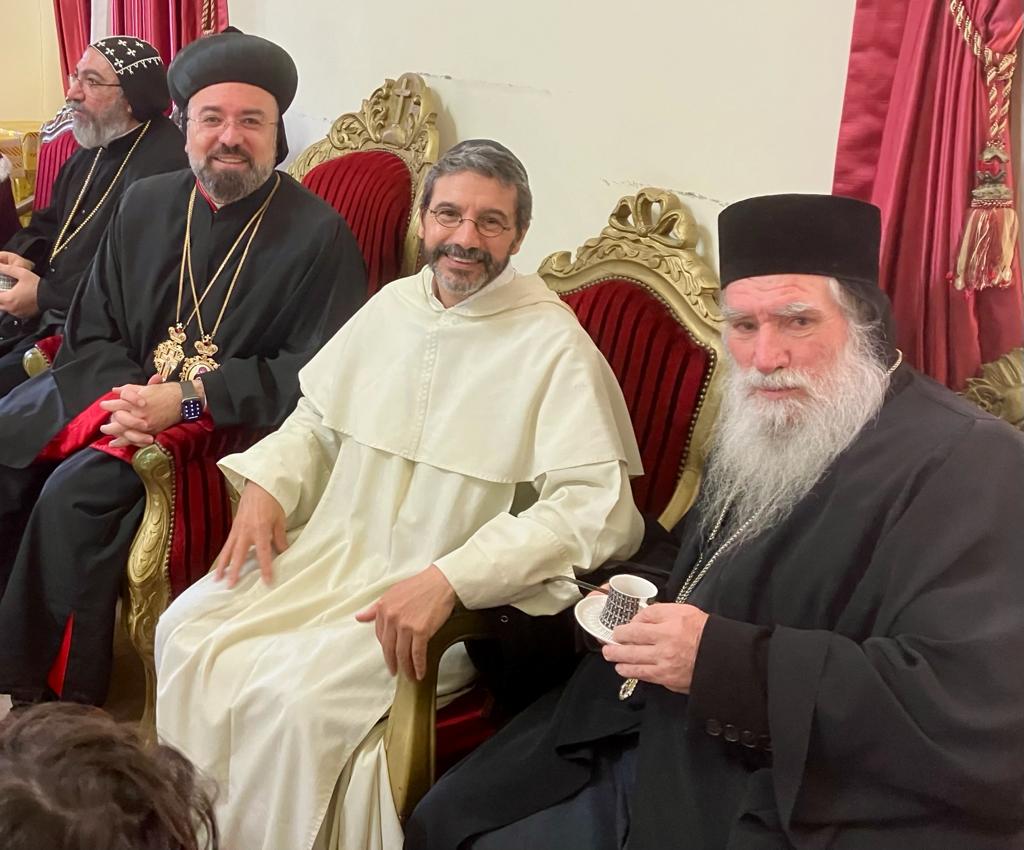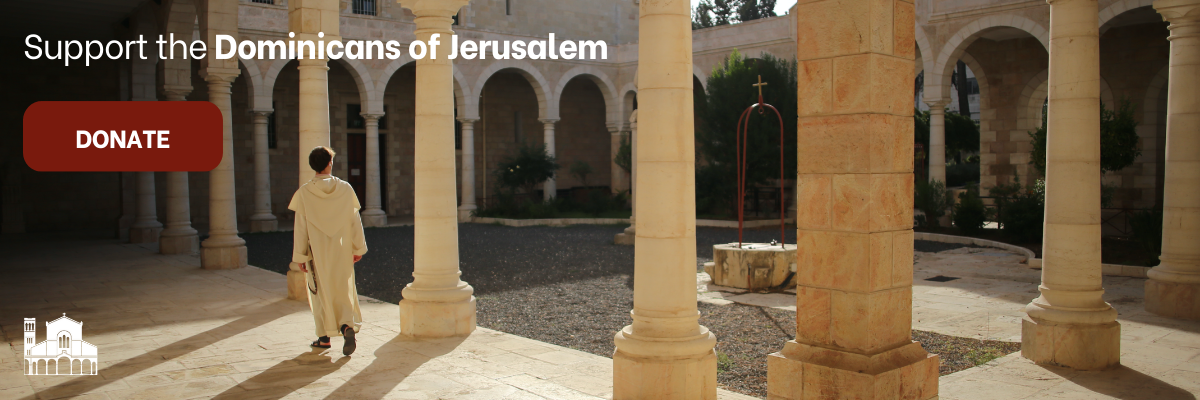Interview with Jean-Ariel Bauzas-Salinas, OP.
A Dominican of the Province of Toulouse, of Franco-Argentine origin, you are the former Secretary General of the Order of Preachers, a mission you fulfilled from 2016 to 2023.
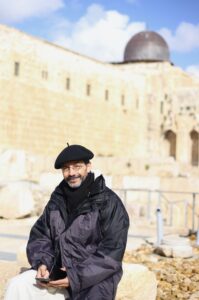
Following your stay in Rome, the Eternal City, you decided to spend three months in Jerusalem, the Holy City. Why did you make this choice ?
After having kept diaries, followed files, filed documents, created protocols and catalogs, I really needed to take the time to “remake my soul”, to sharpen my ear to better listen to the Lord’s will, to remember his acta and passa. After having had the joy of serving the Master of the Order and the Curia for seven years as General Secretary, I needed to come and breathe in the “good smell of Christ”, to let myself be shaped a little more by Providence, without setting myself a plan or keeping an agenda, just letting things happen.
Rome is often referred to as the “eternal city”, while Jerusalem is said to be “holy”. This city, where Christ chose to die and rise again, exudes a perfume of holiness not unlike that of the anointing stone at the Holy Sepulchre, scented with nard and myrrh. My first name may also have prompted me to come. Isaiah 29:2 reads: “Ariel, city where David camped”. It may sound like a call.The highlight of my days is the daily pilgrimage to the Holy Sepulchre. It takes the edge off! I was able to pray there all night during the New Year. Just before the big vigil, the Franciscan guardians of the place invited me, as their brother, to share dinner and draw lots to choose a saint to whom to entrust this new year, as well as the virtue to cultivate. It was John the Baptist, and the virtue was truthfulness: for a Dominican, it couldn’t have come at a better time!
You spent Christmas in Bethlehem with some of the School’s students. What do you remember about it ?
Firstly, the strength of those who live behind the wall, which can be felt when talking to people who have suffered structural injustice for so long. Despite the hardships, their hope does not waver.
Then there was the dignity and pain of the Patriarch, whose homily was impressive in its humanity and accuracy, and thrilled the congregation. The Christmas carols were heavy with a sense of sorrow that never gave way to resignation. Those children in the basilica were smiling in a way that suggested their innocence had already been chipped away. One little one had slipped into the procession and stayed close to me. He looked at me for a moment and gave me a big smile. It’s hard not to feel a twinge of sadness on Christmas Eve 2023 in Bethlehem.
You focused on Jerusalem and Bethlehem, but were you able to go elsewhere in the country ?
Yes, I was invited to the monastery of Deir Rafat (“Monastery of Mercy”) on Epiphany weekend to help the nuns in charge of this Marian shrine. On Saturdays, the Sabbath, they welcome hundreds of Jews from the surrounding towns and quibbutzim. I met a group of extremely curious Jewish teenagers and young people on a hike, who asked me lots of questions about the consecrated life.
The Latroun monastery also exerts this kind of attraction: an Israeli family asked me about the monks’ “life of silence”. Our Christian religious life seems to be of real interest to some Jews. Deir Rafat is about 30 km from Gaza. Bombers pass over the monastery every day, especially at night. The glass in the chapel’s windows shakes from the explosion of the tunnels. When we hear a plane fly over during mass, we pray for those who will be killed in the next few minutes. May the Lord soften the hearts of those who have the power to stop these massacres!
Despite, perhaps because of, the ever-present reality of death, we experience the graces that Providence gives in the midst of trials. Yes, the Lord is merciful (“Rafat”). He will “make all things new” (Rev 21:5).
What do you see as the school’s mission in the years ahead ?
The grace of the School is that it is an open community; a community of God-seekers. Here, through science, we scrutinize the Scriptures and the land to discover the Word He speaks and retell it to the world. To use an archaeological metaphor, we dig for traces of the Word. What touches me at Ébaf is the genuine hospitality shared by the brothers, researchers, students and trainees. It’s very encouraging that, in a world where so many ideological barriers are being erected, there are places where people of such diverse ages, countries, social and religious backgrounds can live and work together. Students can also join in liturgical prayer and share a community lunch. This diversity is intellectually stimulating. Just listen to the sharing and conversations at the table! The conviviality we experience makes me think that something of the Acts of the Apostles is undoubtedly alive here. Twenty brothers, twenty students, no fewer than twenty nationalities, all working together in peace, in the heart of a country at war.
Are you also interested in Eastern Christians ?
I am a birritualist, the Master of the Order having agreed to this at the request of the Patriarch of Antioch: for some years now I have been celebrating for the faithful of the Byzantine Greek-Melkite rite. Having only arrived a few weeks ago, I wouldn’t venture to make any theories or declarations… I’m here to meet people and make fraternal visits to their homes, whether Catholic or not. What I see is, first and foremost, a great cordiality between the different churches on a day-to-day basis. It’s not just a phenomenon of minorities on the defensive, obliged to stand shoulder to shoulder, it’s a choice. Today, stereotypes about tensions between Greeks, Armenians and the Franciscans of the Holy Sepulchre are false. I’ve seen an Orthodox deacon interrupt his incensing to come and shake hands with a young Franciscan and wish him a Happy New Year. And an old Syrian Orthodox monk give me a hug: “Merry Christmas to you, Latin”. There are occasional disagreements, as in any family, but most of the time they’re personal. The Jerusalem syndrome, like the Rome syndrome, exists and does not spare the clergy. Christ frees us from it.
